Pulitzer Prize-Winning Novelist Elizabeth Strout L’82 Examines Law School’s Influence on Her Writing Career.

By her own admission, Elizabeth Strout did not do well in her legal writing class.
“I received a C+, and my teacher was never able to communicate to me what I was doing wrong. I found the conflict between legal writing and creative writing tremendously difficult, although I could never figure out why.”
That first-year setback was not an impediment to Strout’s law school or her writing career. Dropping out after her first year, she eventually returned to law school and graduated cum laude in 1982, “which still tickles me,” she says.
Something Furtive Throughout law school, Strout pursued her creative writing passion, hanging out with the students from the University’s famous M.F.A. program and writing “furtively” in between her assignments. “There was always something furtive about my writing,” Strout explains. “The furtiveness kept me writing under wraps, which was good. It meant the pressure kept building.”
In fact the pressure built and built until Strout began publishing her short stories and eventually her first novel Amy and Isabelle (1998), which was adapted into an “Oprah Winfrey Presents” movie starring Elisabeth Shue.
Amy and Isabelle was the beginning of Strout’s career as an acclaimed novelist, a career which to date includes seven works of fiction; a Pulitzer Prize for Olive Kitteridge (2008), and its adaptation into an Emmy Award-winning mini-series starring Frances McDormand; a Story Prize for Anything Is Possible (2017); and an Oprah’s Book Club pick for her latest novel, Olive, Again (2019).
“Going to Syracuse changed my life. For many years, I did not realize the extent of this truth.”
Elizabeth Strout L’82
Taking A Chance Like the eponymous character of Olive Kitteridge, Strout is a native of Maine. Born in Portland, she grew up in small towns in Maine and New Hampshire. As an adolescent, she wrote avidly in notebooks and received her degree in English from Bates College in 1977. Two years later, she arrived in Syracuse.
“When I went to law school, I knew I wanted to be a fiction writer, but no one at that point was interested in my writing,” recalls Strout. “So I thought, I have a social conscience. I will be a lawyer during the day and write at night.” Strout admits—with some modesty—that her application was perhaps not the strongest Syracuse reviewed that year. “But I am grateful to Syracuse for taking a chance on me.”
Strout also admits that her lawyer-by-day/writer-by-night idea was a little “ill conceived.” Nevertheless, she says, “going to Syracuse changed my life. For many years, I did not realize the extent of this truth, but time has gone by and many different dusts have settled, and I see how much the law school helped shape me as a person and a writer of fiction.”
Learning at Syracuse, continues Strout, “taught me to think differently. It helped strip me of that excessive emotion which I have always felt, an emotion that is necessary for a fiction writer but not one that should be brought to the page in all its sloppiness.”
Strout says she noticed herself thinking differently even after her first semester. “When I went home for break, I realized that friends and family—people who were intelligent—were somehow not thinking that well. They were thinking with emotions and not with solid thoughts.”
Eager to Do It After graduation, Strout worked for a Syracuse legal services office. “I think I was not a good lawyer,” Strout admits. “I was in charge of the Developmentally Disabled Unit. I remember one client who fell asleep on a bench while an administrative law judge told me I had good legs, and then found against my client.”
Always the observant writer, Strout preferred doing office intakes. “I was eager to do it. It involved listening to people who had come in with any number of problems. My job was to figure out whether their problems were legal or not, and often they were not. Their stories were so meaningful to me! They spoke of not being able to pay their bills, having their electricity turned off, and things of that nature.”
Syracuse became close to Strout’s heart for another reason: her daughter was born in the city. “I met my first husband in Syracuse and had my daughter. But I was let go from my legal services job after about six months because of cuts, and then my husband, daughter, and I moved to New York City, where he had a clerkship.”
At that point—graduate degree in hand and some short stories published—Strout began teaching English at Manhattan Community College. Her class had a legal flavor: “The department chair allowed me to teach my composition class around the concept of criminal law.”
“I learned how to negotiate in law school, and I love that class.”
Elizabeth Strout L’82
Many, Many Things Strout taught at Manhattan for 13 years, leaving this vocation once she published her first novel, Amy and Isabelle, an “expansive and inventive” story of a teenage daughter’s alienation from a distant mother. The novel—which introduces readers to the fictional town of Shirley Falls—was a finalist for the prestigious PEN/Faulkner Award.
“After that, I wrote full time,” says Strout. “If I had not gone to Syracuse, I would never have ended up in New York City, and if I had not ended up there, I would never have been able to write as I have about New England. I needed that distance from it; the two cultures are stunningly different.”
Continues Strout, “There were times when I thought, ‘What was that all about?’ Meaning my short legal career. But it was about many, many things—mostly, it was about learning to think differently and the exposure it gave me to many different kinds of people.”
Although she does not write procedurals, Strout notes that her legal training has been useful for her novel writing, especially The Burgess Boys (2013), a story of two brothers from Shirley Falls: Jim, a corporate lawyer, and Bob, a legal aid attorney. “When I wrote The Burgess Boys, the legal aspects of the case the plot hinges on were clear to me only because I had gone to law school,” says Strout. “I was tremendously relieved when I realized how the case would unfold because it meant I could concentrate on understanding the Burgess family and the Somali community, both of which are crucial to the story.”
There’s one more advantage that a lawyer-turned-writer can count on: advocating for oneself when it comes to contracts. Strout explains: “When I was approached about movie rights for Olive Kitteridge, I took the contract to a fancy entertainment lawyer, thinking someone like that should look it over.”
Strout continues, “I paid him a great deal of money, and he had no objections. But after reading it, I realized I did. I didn’t want the stage rights to be deferred for five years, which the contract stipulated—so all by myself, I negotiated that with the other party.”
“I learned how to negotiate in law school, and I loved that class,” says Strout. “What I remembered so clearly from it was this, ‘Know your bottom line and stick with it!’
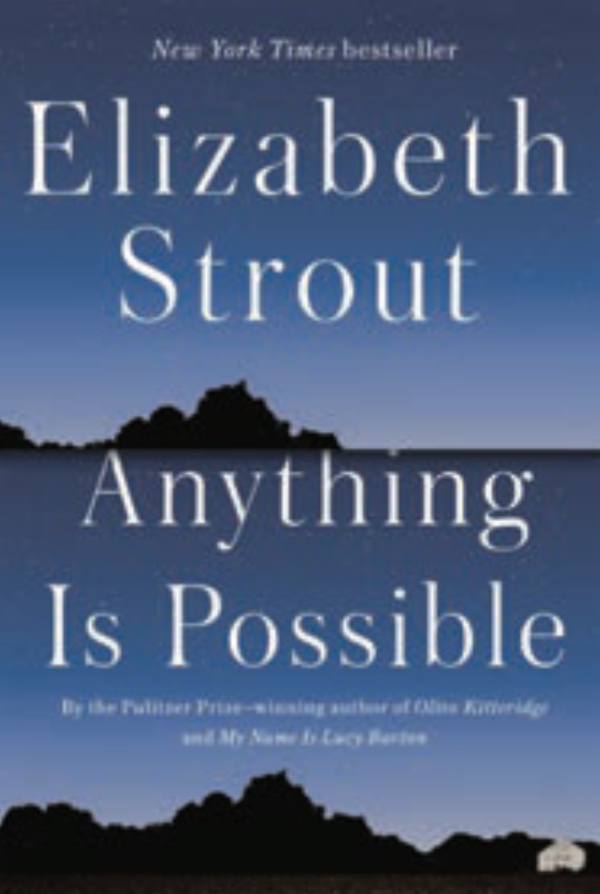
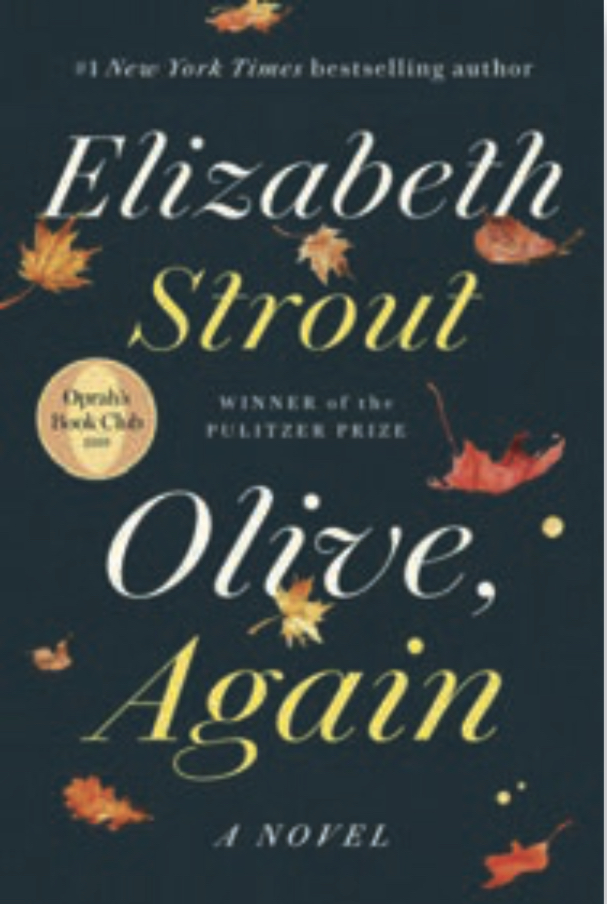

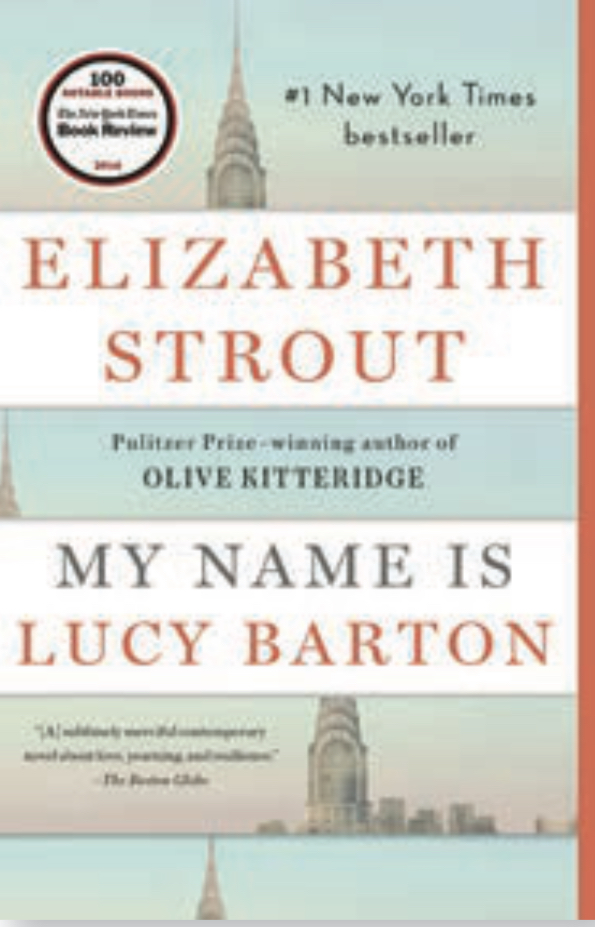
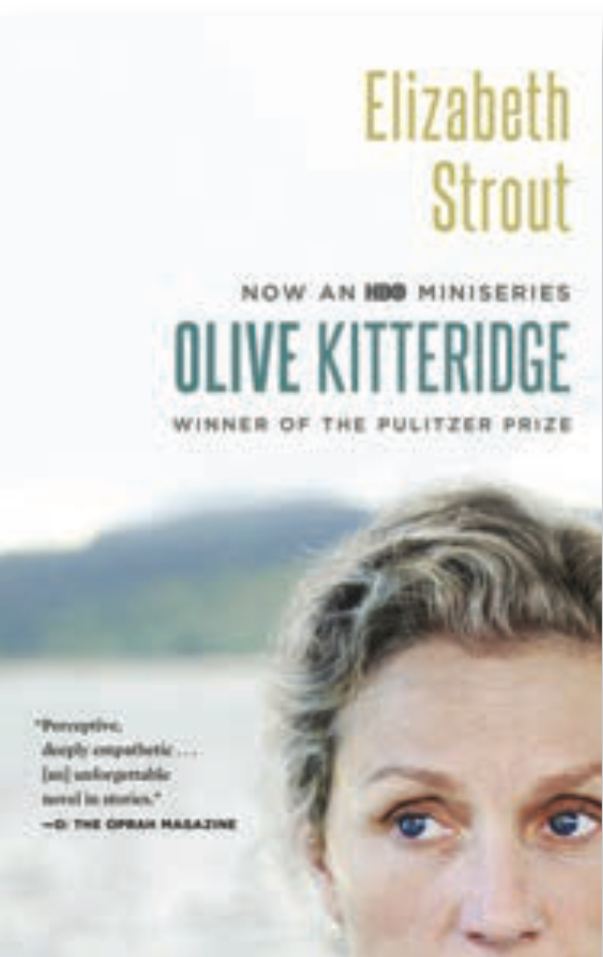


The profile of Pulitzer Prize-winning novelist Elizabeth Strout L’82 began with a central question that moved Strout to think about how her law school training influenced her writing career: To what extent does a background in law and legal writing help an author find success writing fiction?
We posed the same question to three other alumni who have found success both as lawyers and writers. Like Strout, the question led to deep reflection— not surprising, given their love of the written word.
Ronald Goldfarb L’56
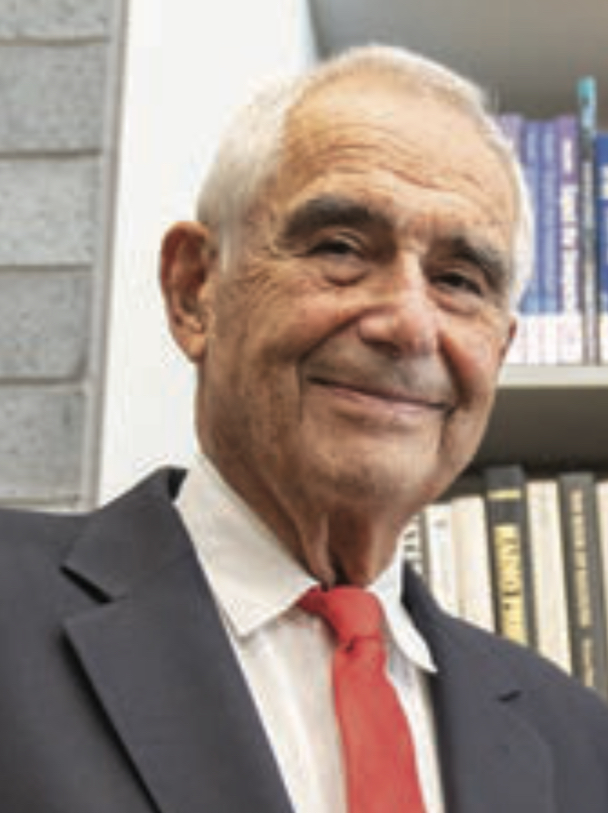
For Ronald Goldfarb, the law represents his education, while he describes writing as his “passion.” “I never consider them distinct skills,” he says. “They are a natural combination, so when asked what I do, I answer in a trifecta: lawyer, author, literary agent.”
Goldfarb says his writing career began in earnest at the College of Law, where he was a member of the Law Review. It further developed at Yale Law School, where he collaborated with a criminal law professor on an article about contempt for a British journal. “That led to my master’s and doctorate thesis on ‘The Contempt Power.’ At New York University Law School, a Hays Fellowship allowed me to complete that manuscript, which Columbia University Press published while I was working at the Department of Justice.”
“Writing about law became an integral part of what I have done ever since, and still do,” explains Goldfarb. He wrote on legal subjects for The New Republic, and one cover story on bail reform led to a book offer from Harper & Row. More books on legal topics of national significance followed: Crime and Publicity: The Impact of News on the Administration of Justice (1967), written with The Washington Post Managing Editor Alfred Friendly; After Conviction: A Review of the American Correction System (Simon & Schuster, 1973), about prison reform; and Jails: The Ultimate Ghetto (Doubleday, 1975).
At the same time, Goldfarb’s career as a literary agent blossomed. “I was seen as a lawyer who knew about book contracts and publishing, so writer clients came to me. I also became counsel to the Washington Independent Writers (representing more than 2,000 freelance writers) and the Association of Writers & Writing Programs, the national organization for teachers of writing.”
Goldfarb turned teacher himself with Clear Understandings: A Guide to Legal Writing (1982), a project sponsored by the Association of State Trial Judges. He returned to legal subjects with Migrant Farm Workers: A Caste of Despair (Iowa State, 1981), written as a result of his two-year court appointment by a federal court to oversee the reform of migrant farmworker laws; In Confidence: When to Protect Secrecy and When to Require Disclosure (Yale, 2009); and After Snowden: Privacy, Secrecy, and Security in the Information Age (St. Martin’s, 2015).
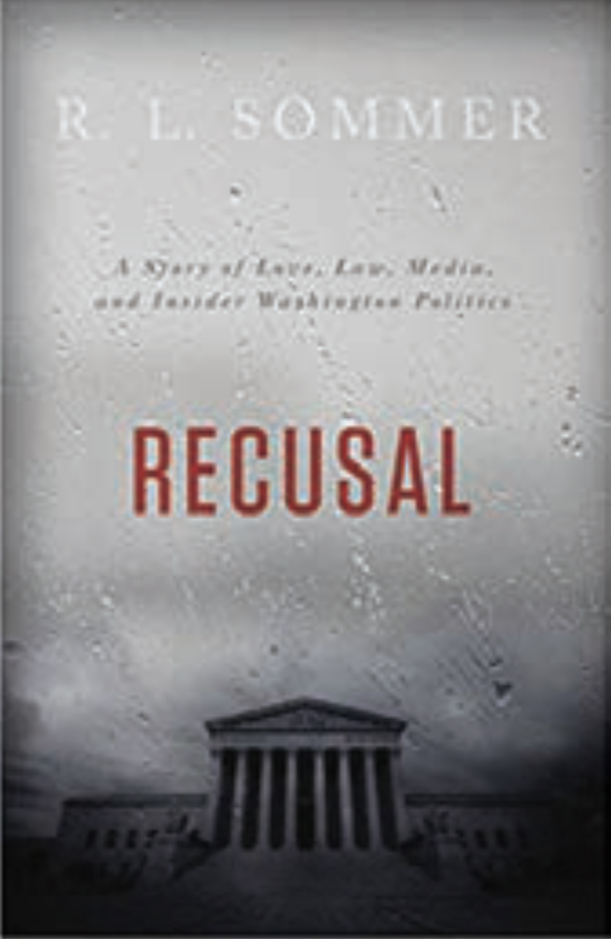
Recently, Goldfarb has turned to fiction—as the pseudonymous R.L. Sommer—with Courtship (2015) and Recusal (2020). “My two novels—a third is in the works for next year—come at a perfect time in my life,” Goldfarb observes. “Nonfiction writing is work; fiction is fun. It can be done wherever I sit with a pen and a pad.”
Through writing fiction, Goldfarb says he has learned how autobiographical a novel can be. “It’s a conclusion I denied until I re-read my novels and realized that while they were not about me, only I could have written them. What I write evolved from my life in law.”
“Recusal blew out of Zeus’ forehead,“ Goldfarb continues. “I was watching the Kavanaugh hearings, sat down, and wrote it in about a month. While writing, I imagined its sequel—The Gender War—which will be published in 2021.”
When writing Recusal, Goldfarb says he “wrote and edited endlessly, following my imagination.” His advice to young lawyers thinking of writing themselves is to “learn the basics so they come naturally to everything you write. Never mimic a writer you admire. And between heart and gut and brain, follow your heart and gut.”
Jodé Millman L’79

Asked about the connection between legal writing and creative writing, legal writing expert Professor Ian Gallacher observes that while the law prizes logical thinking, “good legal writing also relies heavily on narrative skill. There’s even a branch of legal writing scholarship called legal storytelling, which studies how narrative theory can be applied to the documents lawyers write so as to improve their communication.”
That’s an idea that Jodé Millman subscribes to. “I have been an attorney for many decades,” she says. “During that time, I realized that whether it was a divorce, personal injury, or contested will case, it was not only important to be an advocate for my clients, it was equally important to be a storyteller.”
For Millman, storytelling is an extraordinary tool because it contains the power of persuasion. “As champion of my client’s story, it was my job to weave a tale that would convince the court or my adversary that my client was in the right,” she says. “A successful writer understands the power of storytelling and can transcend from legal writing into the creative realm.”
Millman is the author of legal thriller The Midnight Call (2019), praised as a “must-read” by USA Today. “It was my first attempt at crime fiction, and honestly, I didn’t have a clue how to do it,” she admits. The craft of legal writing and creative writing sometimes clashed for Millman—“legal writing is objective, while fiction writing is deeply subjective”—but nevertheless she found that her legal training provided four essential tools for novel writing: discipline, vocabulary, plotting, and research.
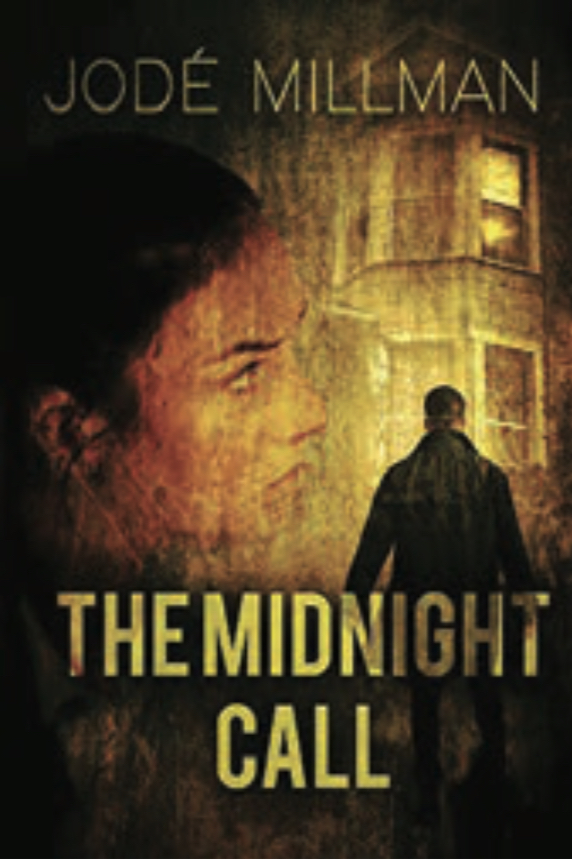
“Unfortunately, attorneys are not trained to be brief,” she adds. “Overwriting can be a difficult habit to break. In fiction writing, less is more. As poet Allen Ginsberg wrote, writers must ‘kill their darlings.’”
Millman says her writing life began in earnest when she became semi-retired. With her children in high school and her family relocated to Ann Arbor, MI, she decided she wasn’t interested in practicing law in a new jurisdiction. Instead, she took a master’s in English literature from Eastern Michigan University, continued a project of her father’s—the “Seats” theater guides—and began teaching part time at the University of Detroit Mercy Law School.
“I’ve been fortunate to begin a new career at a stage in life when I’m in control of my time, most of the time!” she says.
Like other Syracuse law authors, Millman says her legal training is useful when it comes to the contractual side of the writer’s life. “While it’s best not to represent yourself, having the ability to draft and understand contracts has been priceless in negotiating my various agreements for fiction and nonfiction projects,” she says. “Most publishing agreements are drafted in favor of the publisher. Caveat Emptor. In fact, based upon my suggestions, my fiction publisher—Immortal Works—incorporated my contract changes into their standard contract.”
“The law and literature are demanding disciplines” Millman adds. “They require a resource that is limited to us: our time.” That limitation was evident when Millman first attempted a creative writing project—a middle grade children’s novel—while she was in practice and raising her children. “I felt like I was stealing hours to write by staying up late and rising early to put my creative time in. That novel remains unpublished, but maybe someday I’ll return to it.”
Tim Green L’94

Called the “Renaissance Man of Sports,” Tim Green graduated magna cum laude from Syracuse University with a degree in English in 1986 and from the College of Law cum laude in 1994. A legendary member of the Orange football team from 1982 to 1985, Green enjoyed success in the National Football League before becoming a football commentator, an accomplished attorney at Barclay Damon, a legal commentator for NPR, a TV host, and
a best-selling author. Green’s diagnosis with amyotrophic lateral sclerosis was the subject of a 60 Minutes profile in November 2018.
After writing more than a dozen best-selling books for adults, Green began a series of novels for young readers set in a world of sports. Football Genius reached The New York Times best-seller list of children’s chapter books. Then, in 2017, Green and baseball legend Derek Jeter teamed up to write the Baseball Genius series. Green has traveled the United States speaking at schools, inspiring thousands of kids to discover the joys of reading. Passionate about children becoming kinder people and being more understanding of other people through the act of reading, he has used his speaking fees to buy books for children, schools, and libraries that can’t otherwise afford them.
Green cites Professor Emeritus Travis H.D. Lewin as a major influence on both his legal and writing career. “Professor Lewin taught me evidence,” says Green. “He gave me confidence to write about courtroom drama, so I began writing a series of legal thrillers—instead of sports thrillers—and my book sales went from the tens of thousands to the millions. Thanks, Professor Lewin!”
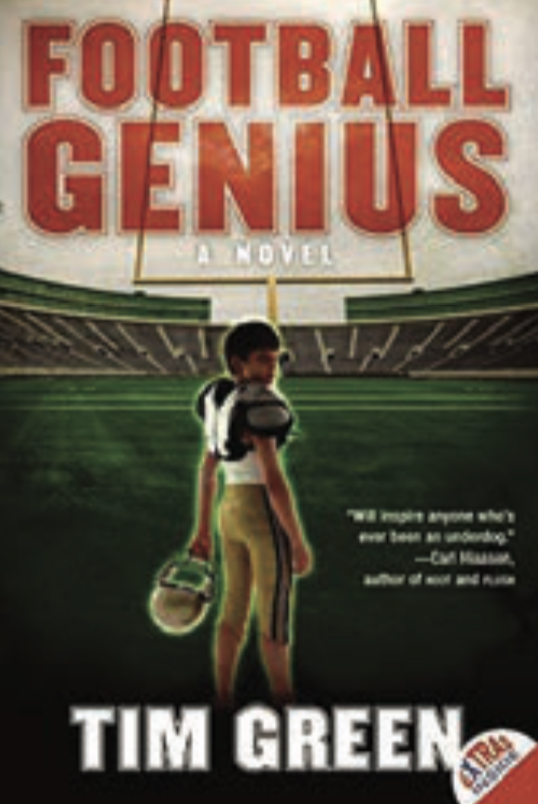
Green’s expertise in contracts also has had a positive effect on his writing career: “My legal training has helped my writing, especially with my ability to read complex contracts and understand the terms, which I am then able to discuss with my agent.”
“I have been fortunate that my legal career has been as a rainmaker,” continues Green. “This has afforded me the flexibility during workdays to carve out time for writing.” Green says that through his books he has been able to build strong relationships—“really, friendships”—with clients. “Whether it’s suspense novels for them, or middle grade sports novels for their kids, my writing has paid for itself 10 times over.”
As for the influence of legal writing on his creative writing, Green is adamant that it’s had
a compelling, positive effect. He uses, appropriately, a sports metaphor to describe the relationship: “Legal writing requires discipline and accuracy. It’s like weightlifting for football: the exercise enhances your performance.”
